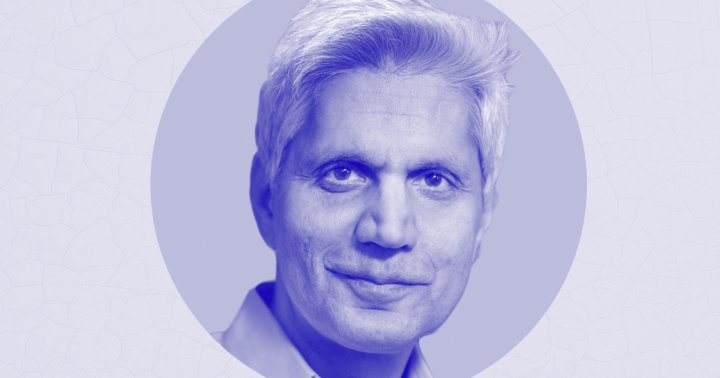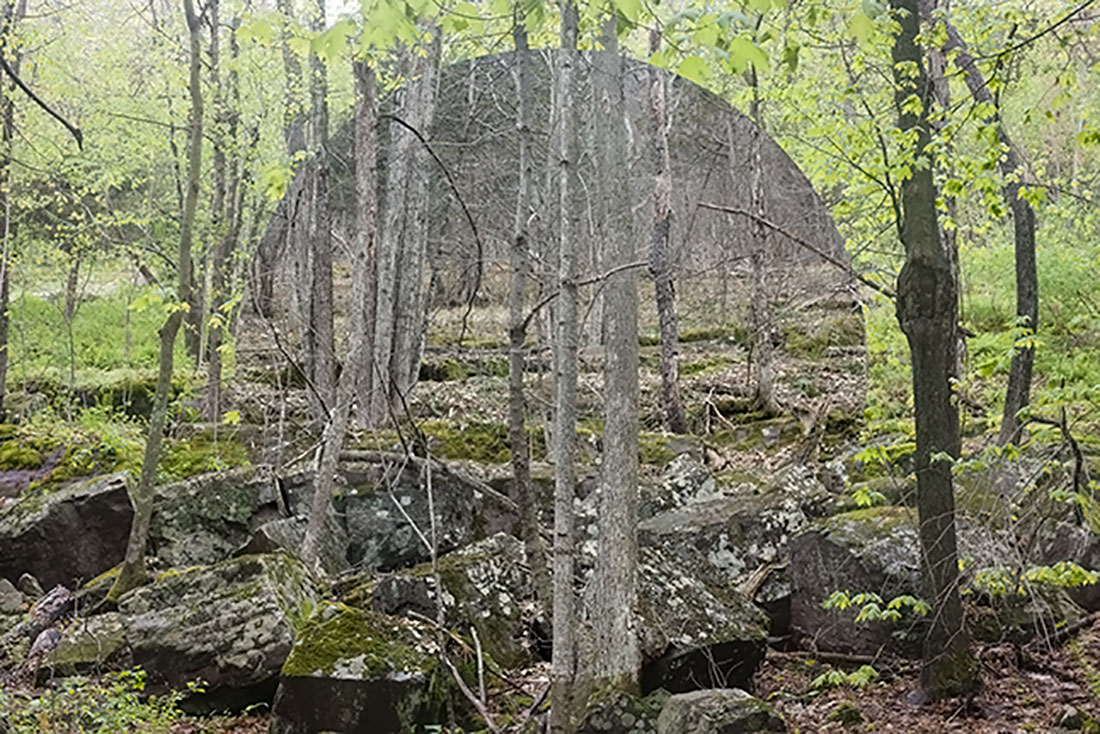Found: A 5-Step Guide To Finding Your True Purpose In Life
How do you know if you’re on the right path?


Our editors have independently chosen the products listed on this page. If you purchase something mentioned in this article, we may earn a small commission.
Purpose is an integral part of mental and physical well-being. Not only is it crucial for brain longevity, but people with a sense of meaning in life have better overall physical health. However, “living with purpose” is a bit of an elusive concept. How do you know if you’re on the right path? And what does living with purpose actually look like?
Good news: Entrepreneur and Columbia Business School professor Hitendra Wadhwa, Ph.D., author of Inner Mastery, Outer Impact, created a five-step plan to cultivate purpose in your everyday life. On this episode of the mindbodygreen podcast, Wadhwa walks us through everything you need to know about finding your true self and realizing your full potential (it’s an episode filled with inspiring nuggets of wisdom, so we encourage you to lend an ear). But if you need a game plan to reference every once in a while, feel free to follow his five steps below:
OK, technically there’s a step “zero” when it comes to finding your purpose. According to Wadhwa, the very first stage is the cruising stage, “where one is just going through the motions of life very satisfied, pleased, and comfortable.” Like the name suggests, you’re cruising through life without stopping to wonder if there’s anything more to strive for. “Fundamentally, [you’re] not willing to question that there's anything more to life than what meets your eyes centrally and materially,” says Wadhwa.
Now, there’s nothing inherently wrong with the cruising stage. It doesn’t mean that you’re oblivious or ignorant to the world around you—you may be chugging along quite happily! For many, though, this is the stage before any kind of curiosity strikes.
Here, you may notice an impetus or calling of some kind. “Stirring could come from a shock to the system, perhaps a personal loss or a setback, or it could just be a calling, an awakening from within,” says Wadhwa. For example, Wadhwa shares how one of his students came home from middle school one day and told her mom that she wanted to become a cancer doctor when she grew up—she’s now an incredible oncologist.
Of course, not everybody has this kind of awakening. “But for many of us, there are moments where we get certain inklings, certain pulls,” says Wadhwa. “In those moments, we feel like there's something more…Over time, if we start to pay attention and connect those dots, they might [give] us insight as to what life is inviting us to express as a purpose.”
To connect those inner dots, you encounter the searching stage. Here, you might seek guidance through mentors, scriptures, or people you’re just generally drawn to who reflect the kind of values you have and the purpose you’d like to achieve. “A series of both inner introspections and outer explorations can ultimately take us to a place where more texture is coming to bear,” he says. Then you can start to identify the core beliefs and direction that give meaning to your life.
“As the search starts to yield benefits, we start to actually codify for ourselves the things we stand for,” says Wadhwa. Now, this definition is an ever-evolving relationship, so don’t feel like you have to name your purpose and stick to it forever—it’s allowed to grow and change as you do.
For example: “I was very drawn to nonviolence early on, but my understanding of what it truly means to be violent in a practical way in the world has been very much evolutionary,” says Wadhwa. At first, it was purely about avoiding physical violence, but as he grew older, it became so much more. “It became more about toning down the impulse to engage in emotional violence—hurting somebody or doing something that has an emotional impact on the other person that is negative,” he continues. Then he realized that sometimes you do have to make difficult calls for the greater good that might hurt somebody else’s feelings.
“Who knows what my definition of nonviolence will be five years from now,” he explains. Point being, don’t be afraid to tweak your purpose during this defining stage. “It's a very vibrant stage, a very active stage. It's not a simple black-and-white, write five things down, and then you’ve made it. It's ever evolving.”
Now, it’s time to fine-tune your purpose. “You can't be everything to everybody at the same time,” Wadhwa says. “You’re going to have to make some trade-offs…You're going to have to ignore lots of things in the service of your purpose.” So ask yourself: What are you willing to put on the backburner in order to dedicate more of yourself towards your purpose?
“Perhaps it's dialing down on certain relationships, commitments, hobbies, [or] being open to disappointing some people in order to be able to gain peace of mind that you're doing your best with the finite amount of energy and time you have in the service of your purpose,” says Wadhwa. That’s not to say you must always ignore the needs of others, but it’s a balance. “[This is] often a very soul-searching phase of trying to understand your relationship with your family, community, organization, and the world beyond,” says Wadhwa.
Finally, you reach the fusion stage. “That is just a wonderful, beautiful point where literally everything that you're doing is being informed, guided, and inspired by your purpose,” says Wadhwa. “Even in everyday, small moments, people who are fused with their purpose just instinctually find a way to map their purpose to whatever it is that they were being asked to do in that moment.”
Imagine the shape of a pyramid: “You progress from the base of the triangle, where you are fairly unstructured and undirected,” he adds, until, very gradually, you move upwards to the very tip of the triangle where you are completely fused. Obviously, this is the ultimate goal, and it’s something to work towards—so don’t fret if you haven’t reached that point quite yet (and there’s no specific age or milestone where you should reach that point; it’s different for everyone).
Cultivating a sense of purpose may seem like a very ambiguous journey, but Wadhwa has identified some common stages to follow. At the end of the day, everyone’s path looks a little different, but these overarching themes do make an appearance at some point.
Enjoy this episode! And don't forget to subscribe to our podcast on iTunes, Google Podcasts, Spotify, or Amazon Music!
Reset Your Gut
Sign up for our FREE doctor-approved gut health guide featuring shopping lists, recipes, and tips
You are now subscribed
Be on the lookout for a welcome email in your inbox!
https://www.mindbodygreen.com/articles/5-step-guide-to-finding-your-true-purpose-in-life

 Hollif
Hollif 
































